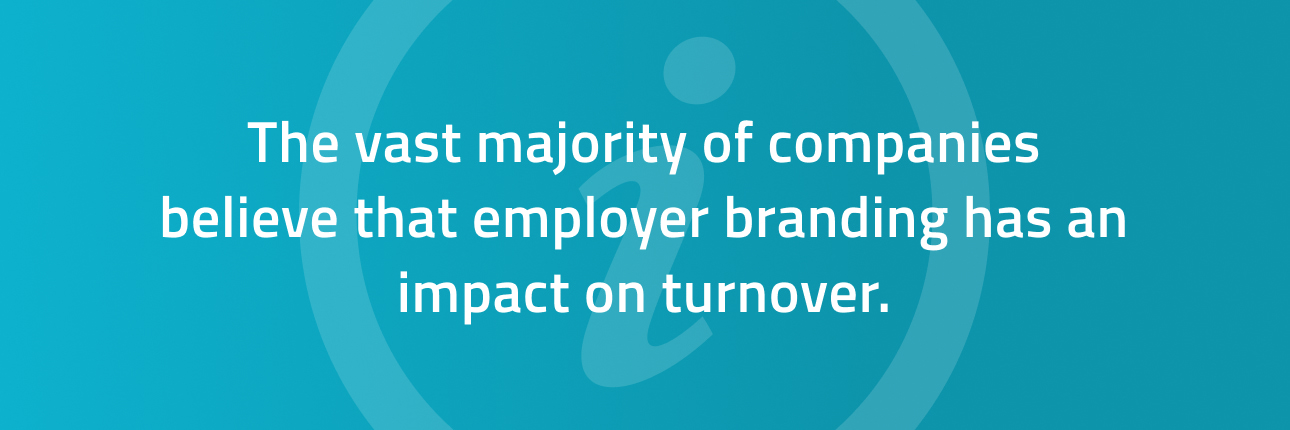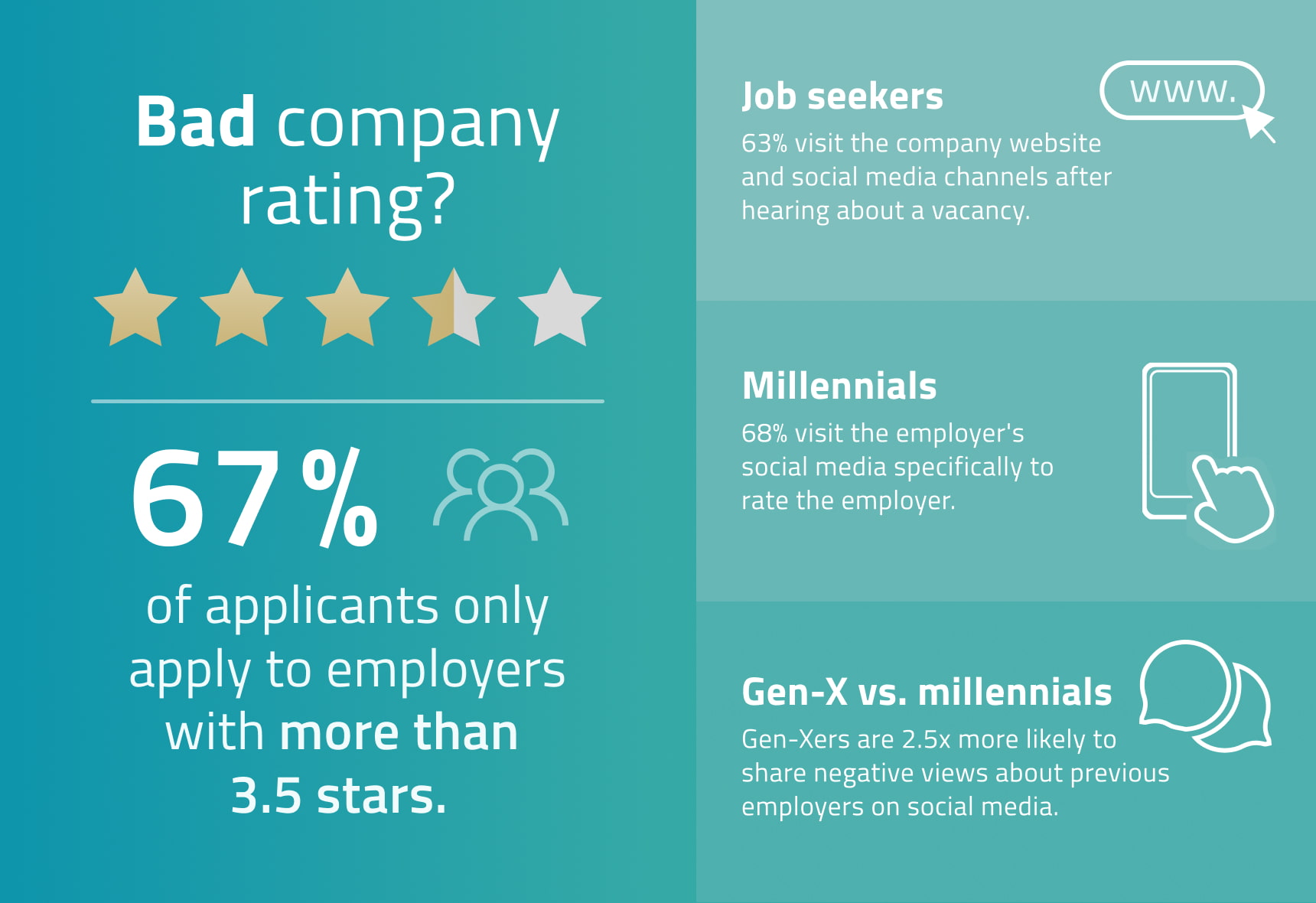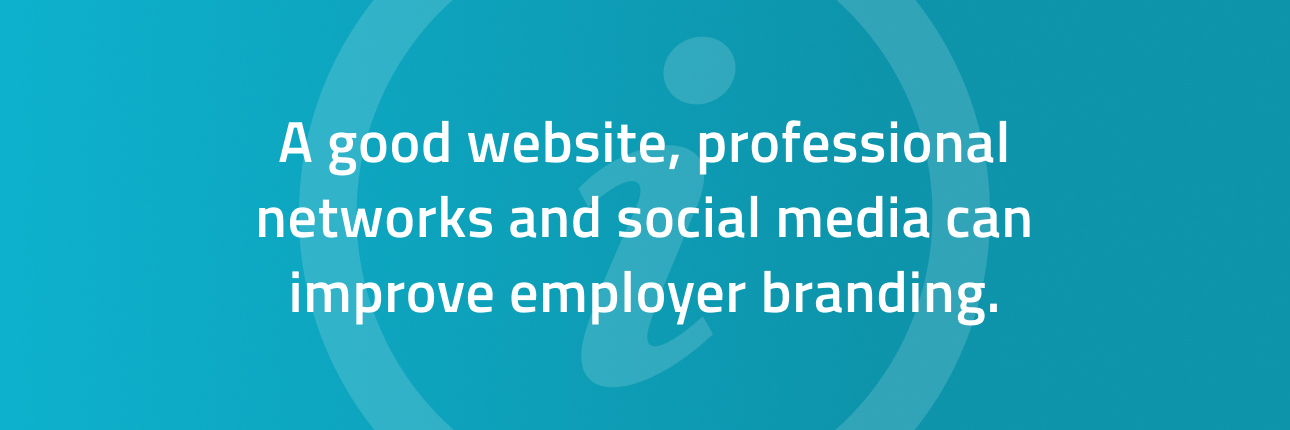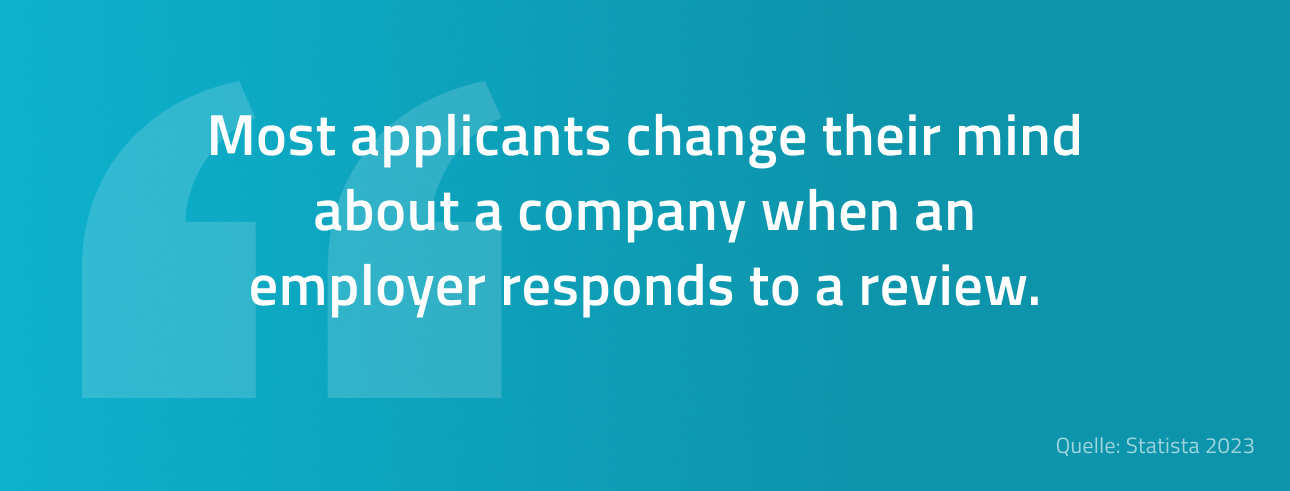Employer Branding – everything you need to know about it
Last updated: May 30, 2024To attract and retain the best talent in the industry, employer branding can set your company apart from the competition in a highly ambitious job market. It facilitates reputation management and talent acquisition, as well as reduces employee turnover in HR. In the following article we take a closer look at what employer branding is and depict three statistics on employer branding.
What is Employer Branding?
In contrast to Corporate Branding, Employer Branding communicates your company's goals and values to both job seekers and current employees. Employer branding focuses on the company as an employer - why people join you and why existing employees should stay.
When companies invest in employer branding, they are better able to attract and retain talent. Their reputation is strengthened with potential applicants and current employees feel satisfied. It's a win-win situation that is crucial to the bottom line.
How does employer branding affect a company? Let's take a look at the following statistics:

According to a study by CareerArc, 96% of companies believe that employer branding and reputation have a positive or negative impact on sales. However, less than half of these companies (44% to be exact) monitor this impact. Employer branding can have a significant impact on turnover, especially if an employer has a poor reputation. Companies will find it more difficult to fill positions and hire the employees they need. As a result, recruiters may have to increase wages to convince applicants to accept a job offer. Research from the Harvard Business Review (HBR) suggests that some companies may need to increase salaries by at least 10%. That's almost €4,000 more per year per employee, which will certainly have an impact on the company's bottom line. Even then, a 10% pay rise may not be enough to compensate for a poor employer brand. Only 28% of applicants in the HBR study would accept a 10% pay rise if the company has a poor reputation. Poor employer branding also has an impact on turnover.
If disgruntled applicants and former employees leave negative feedback on social media, customers may think twice before buying from that brand. That's why it's important that you develop an effective strategy for your employer brand.
There are several ways to improve your employer branding. Recruiters say that the company website (69%), online professional networks (61%) and social media (47%) are the three most important channels for small and medium-sized companies wanting to develop their employer brand.
Website
A good website attracts the attention of applicants and explains the employer's mission, values and goals. A dedicated careers section is also a great way to communicate your value proposition as an employer to potential applicants. Showcase your brand personality through the design of the website, the "About us" section and the job descriptions. Every part of your careers site contributes to the candidate's experience.
Professional networks
Professional networks help recruiters and other HR professionals build relationships with industry leaders and influential people. First, make sure you have a profile on LinkedIn and other professional networks where your target candidates are active. Then, build a strong presence for yourself by sharing relevant content and updates not only about the job, but also about the company culture in general. This shows that you understand your niche and are a dynamic company.
Social media
Building a good reputation on social media has a positive impact on an employer's brand. This is the most organic channel to give an authentic impression of the people and values in your company. You can easily upload photos or videos to your Twitter or Facebook page and create hashtags that your employees can use in their own posts. This way, you can build a real online community around your brand and attract even more highly skilled employees.
Research from Glassdoor shows that 62% of job applicants would change their mind about a company after seeing that an employer has responded to a review. This statistic mirrors another study by G2 which shows that 7 out of 10 people have changed their mind about a brand after a company has responded to an online review. As you can see, managing and monitoring online reviews can significantly improve employer branding.
When you respond to a review - whether it's positive, negative or neutral - it shows that you care about your brand. In the context of employer branding, responding constructively to a former employee or applicant can help you present your side of the story and mitigate the negative impact of the review. Many companies believe that applicants and employees don't check online. However, most of them do.

If you receive negative reviews on platforms such as Glassdoor or Kununu, you should respond professionally. Write your responses as if you were talking to a real person. Management jargon and formal language do not go down well. Instead, engage with the person who wrote the review and explain your point of view. This will significantly increase your credibility.
Employer branding is a critical component of HR strategy to attract and retain top talent. It's about creating and promoting a positive and attractive employer image. However, using methods such as social media and professional networks, as well as responding to online reviews, are important ways to strengthen your employer brand.
Have you been inspired to invest in your employer brand? Check out our new ProvenEmployer feature.
Your ally in creating a workplace that attracts top talent and fosters a positive company culture.


